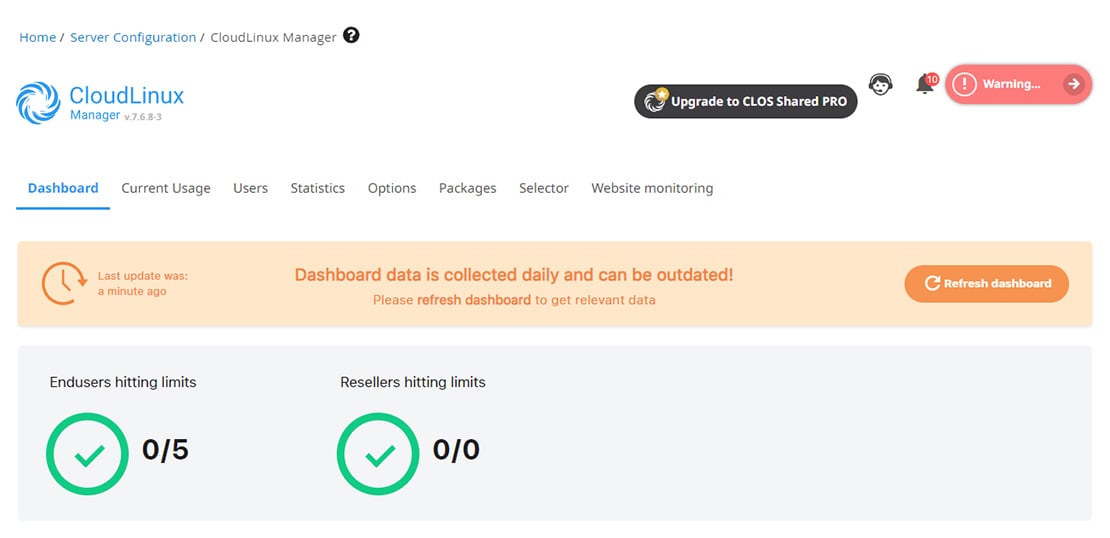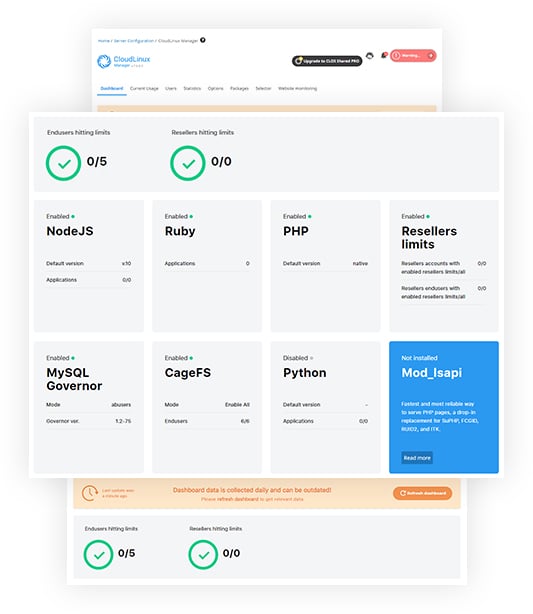What is Cloud Linux?
A single account on a shared hosting server monopolising a lot of resources can result in other accounts experiencing downtime which can have detrimental effects. CloudLinux avoids this from happening by dividing all the shared hosting accounts virtually and keeping a tab on the resources each account uses.
What factors result in increasing shared Linux web hosting server usage?
Shared web hosting servers offer a set of resources commonly used by all the accounts hosted on the same server. Hence, a single server using excess resources will cause the performance of other accounts to suffer. CloudLinux ensures all accounts receive sufficient resources by monitoring excessive CPU and disk usage of individual accounts.
When is it time to upgrade to a Virtual Private Server?
Startups and small businesses often opt for shared hosting as it has sufficient resources to accommodate their needs and it is extremely budget-friendly. However, as the website grows, so do its needs, which require an upgrade in your web hosting plan. VPS is the perfect plan to choose after shared hosting as it is fairly economical with all the resources that a fast-growing website needs.
How does CloudLinux separate one account from another?
CloudLinux uses Lightweight Virtualised Environment (LVE) technology to divide one account from another and assign individual resources. It helps keep the activities of one account from affecting the rest hosted on the same shared hosting server.
What are the benefits of CloudLinux’s hardened kernel?
A hardened kernel ensures that all the accounts hosted on the server remain protected from malicious attackers looking to gain access and cause harm.
What are the limits of shared Linux web hosting?
All of our shared hosting packages are closely monitored to ensure sufficient resources for each account. Take a look at the packages we offer to understand the features each package includes.


